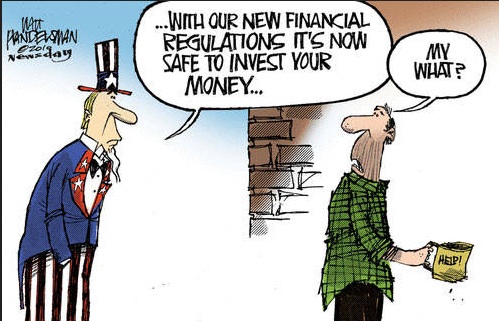Flloyd Norris writes: What happens when you turn over regulatory responsibilities to people who think there is really no need for regulation?
The United States, and much of the world, tried that for a large part of the last quarter-century. Along the way, a series of crises sent out warning signals that were not heeded.
After the economy recovered from the stock market crash of 1987, Alan Greenspan, the Federal Reserve chairman who had poured money into the market to stem the damage, was celebrated as a hero. He believed in what came to be derided as “market fundamentalism,” holding that markets were far smarter than governments and would produce optimal results if only there were no interference from politicians.
That analysis certainly seemed reasonable through much of the 1990s. The economy grew without a recession for 10 years, the longest such stretch in United States history. A few people worried that bad things could happen as a result of the explosive growth in derivative securities, but they were largely marginalized by the obvious fact that only good things were happening. Financial Regulation

